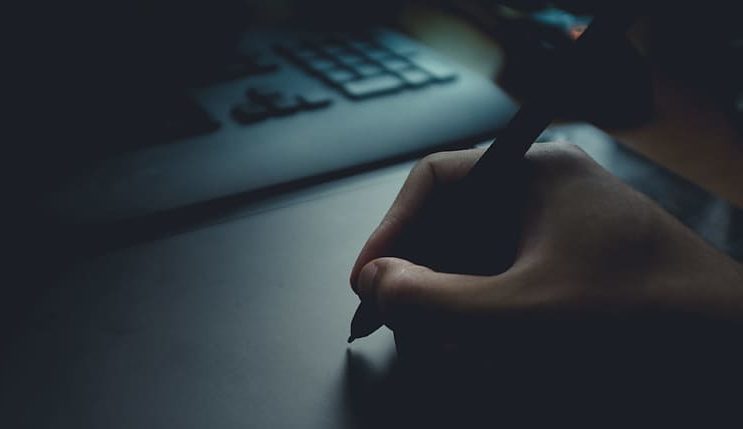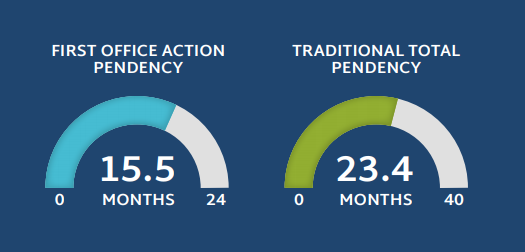Expediting and Reducing Costs in U.S. Patent Prosecution
Oct 20th, 2020 by Ben Lehberger | Recent News & Articles |
Introduction
The U.S. Patent Office has a backlog of nearly 600,000 patent applications awaiting examination. From filing to a final disposition (final rejection, abandonment, or allowance), the average time to a First Office Action is presently about 16 months and the average total pendency is about 2 years.
However, there are several programs that applicants can take advantage of to expedite prosecution and in some cases reduce costs. This article discusses several options to consider at the outset of prosecution, during prosecution, and at the final and appeal stages.
Outset of Prosecution
At the outset of prosecution, the programs available include Track One Prioritized Examination, Accelerated Examination, the Patent Prosecution Highway, and Petitions to Make Special.
Track One Prioritized Examination can be requested when filing any new utility patent application, national stage entry of a PCT, or Request for Continued Examination (RCE). While the aim of the program is to provide a final disposition within 1 year, recent statistics show that the average time to a First Office Action is less than 3 months from filing and the average time from filing to final disposition is about 7 months. Track One comes at a price of $4,000 for large entities, though this may be worth it when time is of the essence, such as when an infringer has entered the market. Also, Track One applications tend to have less Office Actions which reduces attorney’s fees and may make up for the additional upfront expense.
Not to be confused with Track One, Accelerated Examination provides a similar timeline and requires a fee of only $140. However, Accelerated Examination requires the applicant to conduct a pre-examination search for prior art and file an examination support document identifying which of their claim limitations are in the cited prior art with specific citations. The support document must be carefully drafted with due consideration given to how the applicant’s statements about the claims and prior art will be scrutinized in any future litigation. Given these requirements, and also the attorney’s fees associated therewith, Accelerated Examination is seldom used.
Most patent practitioners are familiar with the global Patent Prosecution Highway (PPH) program which speeds up the examination process when an applicant receives a final ruling from a first patent office that at least one claim is allowed. There is no fee to file a PPH petition in the U.S. Patent Office. The time to receive a First Office Action is reduced, and 21% of U.S. applications examined following a granted PPH petition receive a first action allowance as compared to 14% for all new applications.
Petitions to Make Special can be used to speed up patent prosecution with minimal or no fee depending on the grounds. The most common is a Petition to Make Special based on at least one inventor being 65 years or older, which is free to file. Likewise, a free Petition to Make Special may be filed when an inventor has a health concern such that the inventor may not be available to assist in the prosecution of the application if it were to run its normal course.
During Prosecution
During prosecution, we find that prosecution is typically more efficient when there is an examiner interview. Even if the interview does not lead to an allowance, valuable insight can be gained from speaking directly with the Examiner and applicants are typically left with a better understanding of the rejections to determine the best next step.
Applicants can take advantage of the Full First Action Interview program or general interview requests.
The Full First Action Interview program can be requested for any application having three (3) or fewer independent claims and twenty (20) or fewer total claims, and there is no fee. Acceptance of your request results in the Examiner providing a condensed pre-interview communication citing relevant prior art and identifying proposed rejections or objections. The applicant submits proposed amendments and/or arguments within 30 days, after which is interview is scheduled. If no agreement is reached, prosecution resumes with a first office action. 29% of the applications examined under the Full First Action Interview program receive a first action allowance as compared to 14% for all new applications.
In addition to the Full First Action Interview program, an applicant can request an interview nearly anytime during prosecution. Interviews are available in person, by telephone, and by video. Having an interview after a First Office Action is helpful to gauge the Examiner’s opinion of proposed amendments or arguments and to identify the primary impediments to allowance.
Final Office Action and Appeal
Even when you have received a Final Office Action, there are still options to avoid an appeal or Request for Continued Examination, or at least expedite the Appeal process.
The After Final Pilot Program, recently extended through September 2021, provides for an interview after final and further consideration of narrowing claim amendments. Not only does not AFCP provide an opportunity to speak to the Examiner while considering whether to appeal or request continued examination, approximately 25% of AFCP requests lead to allowances.
A Pre-Appeal Brief and Conference can be requested by an applicant at the time a notice of appeal is filed. This program requires the applicant to file a condensed five-page brief providing a succinct, concise, and focused set of arguments for which the review is being requested. A panel of examiners is assembled to consider the arguments before appeal giving the applicant additional sets of eyes on the case. The result may be an allowance, a reopening of prosecution, or a denial which begins the appeal process. There is no separate fee required for this program.
Finally, when an appeal becomes inevitable, applicants can, as of July 2020, take advantage of a new Fast-Track Appeals Pilot Program. This program targets a final decision on appeal within six months, significantly less than the typical 1-2 year pendency. There is a $420 fee for the program and the applicant can have their appeal decided on the papers or with an oral hearing.
Applicants are encouraged to consult with their U.S. counsel at the time of filing to evaluate which of these many programs may be used to their advantage. Dilworth IP is well versed in each of these programs and welcome you to contact us with any questions.
Image credits: (Piqsels @ Creative Commons)
This article is for informational purposes, is not intended to constitute legal advice, and may be considered advertising under applicable state laws. The opinions expressed in this article are those of the author only and are not necessarily shared by Dilworth IP, its other attorneys, agents, or staff, or its clients.


